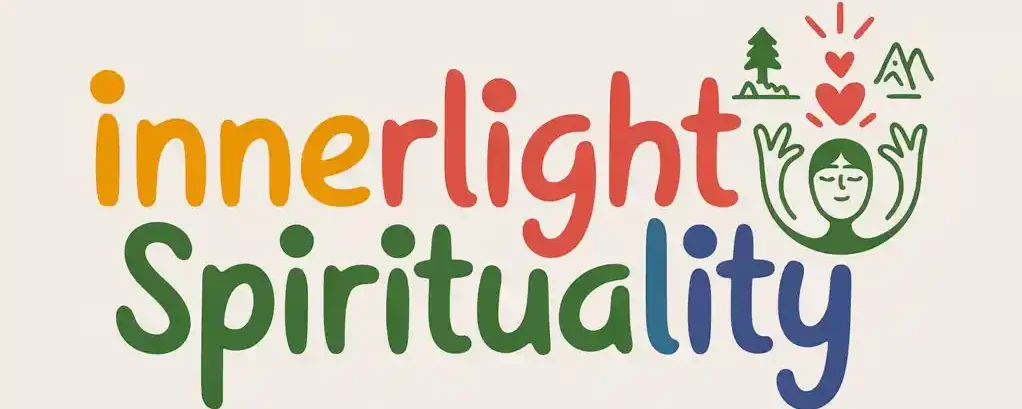18 Powerful Bible Verses for Forgiving Yourself: A Path to Healing and Grace
Self-forgiveness often proves challenging. Many people struggle to release guilt and embrace God’s grace.
This article explores 18 Bible verses that offer guidance for forgiving yourself. These scriptures provide comfort, encouragement, and practical steps for those seeking self-forgiveness.
The journey of self-forgiveness begins with recognizing God’s unconditional love and accepting His forgiveness. This post aims to help readers navigate this path using biblical wisdom.

Key Takeaways: The Essence of Self-Forgiveness
- God’s forgiveness is the foundation for self-forgiveness
- Confession and repentance are crucial steps in the process
- God’s love is unconditional and extends to all who seek it
- Letting go of past mistakes allows for personal growth
- Self-forgiveness is a journey, not an instant transformation
- Scripture provides comfort and guidance for those struggling
- Accepting God’s grace is essential for forgiving oneself
- Focusing on the future rather than dwelling on the past is key
- God’s mercy is new every day, offering fresh starts
- Forgiveness leads to freedom from guilt and shame
Understanding the Biblical Basis for Self-Forgiveness
The Bible teaches that God forgives sins. This truth forms the foundation for self-forgiveness. God’s forgiveness enables us to forgive ourselves.
Self-forgiveness is a crucial aspect of spiritual and emotional well-being. The Bible provides numerous examples of God’s forgiveness and grace, which serve as a model for how we should treat ourselves.
By understanding and accepting God’s forgiveness, we can learn to extend that same compassion and mercy to ourselves, breaking free from the chains of guilt and self-condemnation.
In the journey of self-forgiveness, it’s essential to remember that God’s love is unconditional. His forgiveness is not based on our worthiness but on His character.
The Power of Confession in Self-Forgiveness
1 John 1:9 states, “If we confess our sins, he is faithful and just and will forgive us our sins and purify us from all unrighteousness.” Confession opens the door to forgiveness.
Confession plays a vital role in the process of self-forgiveness. When we openly acknowledge our mistakes and shortcomings before God, we take the first step towards healing.
This act of vulnerability allows us to confront our actions honestly, paving the way for genuine repentance and transformation.
Through confession, we invite God’s cleansing power into our lives, enabling us to experience the freedom of forgiveness.
The act of confession also helps us release the burden of guilt we carry. It’s a powerful tool for emotional and spiritual healing.
Embracing God’s Unconditional Love

Romans 8:1 declares, “There is now no condemnation for those who are in Christ Jesus.” God’s love frees us from self-condemnation.
God’s unconditional love forms the bedrock of self-forgiveness. When we truly grasp the depth and breadth of His love, we begin to see ourselves through His eyes.
This perspective shift allows us to let go of self-judgment and embrace the forgiveness that God freely offers.
His love is not based on our performance or perfection but on His unchanging character and the sacrifice of Jesus Christ.
Embracing God’s love enables us to extend grace to ourselves, just as He extends it to us. This acceptance is transformative.
Letting Go of Past Mistakes
Philippians 3:13-14 encourages, “Forgetting what is behind and straining toward what is ahead, I press on toward the goal to win the prize for which God has called me heavenward in Christ Jesus.” This verse urges us to focus on the future.
Letting go of past mistakes is a crucial step in the journey of self-forgiveness. It involves consciously choosing to release the grip that past errors and regrets have on our present and future.
This process doesn’t mean forgetting what happened, but rather learning from it and refusing to let it define us. By focusing on the future and the goals God has set before us, we can move forward with renewed purpose and hope.
The act of letting go also involves trusting in God’s redemptive power to bring good out of our mistakes.
The Journey of Self-Forgiveness
Lamentations 3:22-23 reminds us, “Because of the Lord’s great love we are not consumed, for his compassions never fail. They are new every morning; great is your faithfulness.” Each day offers a fresh start.
Self-forgiveness is a journey, not a destination. It’s a process that requires patience, persistence, and grace. Along this path, we may encounter setbacks and moments of doubt, but God’s compassion and faithfulness provide the strength to continue.
Each day presents an opportunity for a new beginning, a chance to embrace God’s forgiveness and extend it to ourselves.
This journey involves daily choices to trust in God’s love and reject self-condemnation. It’s a transformative process.
Finding Comfort in Scripture

Psalm 103:12 assures, “As far as the east is from the west, so far has he removed our transgressions from us.” God’s forgiveness is complete and far-reaching.
Scripture offers profound comfort in the journey of self-forgiveness. The Bible is filled with verses that remind us of God’s love, mercy, and forgiveness.
These words serve as anchors for our souls, providing reassurance when we struggle with guilt or shame. By meditating on these truths and internalizing them, we can find the strength to forgive ourselves and move forward in faith.
Regular engagement with Scripture helps renew our minds and align our thoughts with God’s perspective on forgiveness.
Accepting God’s Grace
Ephesians 2:8-9 teaches, “For it is by grace you have been saved, through faith—and this is not from yourselves, it is the gift of God—not by works, so that no one can boast.” Grace is a gift we must accept.
Accepting God’s grace is fundamental to self-forgiveness. Grace is the unmerited favor of God, freely given to us despite our shortcomings.
When we truly understand and embrace this grace, it becomes easier to extend forgiveness to ourselves.
This acceptance involves recognizing that our worth is not based on our actions or achievements, but on God’s unconditional love and acceptance of us.
Embracing grace allows us to let go of perfectionism and the need to earn forgiveness through our own efforts.
Focusing on the Future
Isaiah 43:18-19 encourages, “Forget the former things; do not dwell on the past. See, I am doing a new thing!” God calls us to look forward, not backward.
Focusing on the future is a powerful strategy in the process of self-forgiveness. Instead of being trapped by past mistakes, we are called to look ahead to the new things God is doing in our lives.
This forward-looking perspective allows us to see possibilities for growth and change, rather than being defined by our past actions. It involves actively choosing to invest our energy in pursuing God’s purpose for our lives.
This future focus helps us cultivate hope and optimism, essential elements in the journey of self-forgiveness.
Experiencing God’s Daily Mercy
Micah 7:18-19 proclaims, “Who is a God like you, who pardons sin and forgives the transgression of the remnant of his inheritance? You do not stay angry forever but delight to show mercy.” God delights in showing mercy.
God’s mercy is renewed every day, offering us a constant source of hope and forgiveness. This daily renewal reminds us that no matter what happened yesterday, we have the opportunity to start anew today.
Experiencing God’s mercy involves recognizing and embracing His compassionate nature, understanding that He delights in forgiving and restoring us. This realization can profoundly impact how we view ourselves and our past mistakes.
Embracing God’s daily mercy helps us cultivate a merciful attitude towards ourselves and others.
Finding Freedom Through Forgiveness
John 8:36 promises, “So if the Son sets you free, you will be free indeed.” True freedom comes through Christ’s forgiveness.
Forgiveness leads to freedom – freedom from guilt, shame, and self-condemnation. When we accept Christ’s forgiveness and extend it to ourselves, we experience a profound liberation.
This freedom allows us to live authentically and purposefully, unburdened by the weight of past mistakes. It enables us to embrace our identity in Christ and live out our potential without being held back by regret or self-doubt.
This freedom through forgiveness empowers us to pursue God’s calling on our lives with confidence and joy.
The Role of Repentance in Self-Forgiveness
Acts 3:19 advises, “Repent, then, and turn to God, so that your sins may be wiped out, that times of refreshing may come from the Lord.” Repentance leads to renewal.
Repentance plays a crucial role in the process of self-forgiveness. It involves more than just feeling sorry for our actions; it requires a genuine change of heart and direction.
True repentance leads us to turn away from our mistakes and towards God, seeking His guidance and transformation.
This shift in perspective and behavior is essential for experiencing the full depth of forgiveness and renewal.
Repentance opens the door to God’s refreshing presence, bringing healing and restoration to our souls.
God’s Perspective on Our Past
2 Corinthians 5:17 declares, “Therefore, if anyone is in Christ, the new creation has come: The old has gone, the new is here!” In Christ, we become new creations.
Understanding God’s perspective on our past is crucial for self-forgiveness. In Christ, we are new creations – our past no longer defines us.
This truth allows us to see ourselves through God’s eyes, recognizing that He views us as forgiven and renewed.
Embracing this perspective helps us let go of the old identity shaped by our mistakes and embrace the new identity we have in Christ.
This new perspective empowers us to live in the present and look to the future with hope and confidence.
Overcoming Guilt and Shame
Romans 8:38-39 assures, “For I am convinced that neither death nor life, neither angels nor demons, neither the present nor the future, nor any powers, neither height nor depth, nor anything else in all creation, will be able to separate us from the love of God that is in Christ Jesus our Lord.” Nothing can separate us from God’s love.
Overcoming guilt and shame is a significant aspect of self-forgiveness. These negative emotions often persist even after we’ve acknowledged our mistakes and sought forgiveness.
The key to overcoming them lies in fully embracing God’s unconditional love. When we internalize the truth that nothing can separate us from His love, we can begin to release the grip of guilt and shame on our lives.
This process involves regularly reminding ourselves of God’s love and forgiveness, especially when feelings of unworthiness arise.
The Healing Power of God’s Forgiveness
Psalm 147:3 promises, “He heals the brokenhearted and binds up their wounds.” God’s forgiveness brings healing to our hearts.
God’s forgiveness has immense healing power. It not only addresses our spiritual need for reconciliation with God but also brings emotional and psychological healing.
When we accept His forgiveness, it begins to mend our broken hearts and heal the wounds caused by guilt and self-condemnation.
This healing process allows us to move forward with a renewed sense of wholeness and peace.
The healing that comes through forgiveness often extends beyond ourselves, positively impacting our relationships with others.
Embracing a New Identity in Christ
Colossians 3:13 instructs, “Bear with each other and forgive one another if any of you has a grievance against someone. Forgive as the Lord forgave you.” We are called to forgive as we have been forgiven.
Embracing our new identity in Christ is crucial for self-forgiveness. This identity is not based on our past actions or mistakes, but on who we are in Christ – forgiven, loved, and made new.
When we fully embrace this identity, it becomes easier to extend forgiveness to ourselves. We begin to see ourselves as God sees us – as His beloved children, worthy of love and forgiveness.
This new identity empowers us to live out the forgiveness we’ve received, both towards ourselves and others.
The Transformative Nature of God’s Love
1 Peter 5:7 encourages, “Cast all your anxiety on him because he cares for you.” We can release our burdens to God.
God’s love has a transformative power in the process of self-forgiveness. When we truly understand and experience His love, it begins to change how we view ourselves and our past mistakes.
This love enables us to release our anxieties and burdens to Him, including the weight of guilt and self-condemnation. As we lean into His love, we find the strength to forgive ourselves and embrace the freedom He offers.
Experiencing God’s transformative love helps us develop a more compassionate attitude towards ourselves and others.
Finding Peace Through Self-Forgiveness
Philippians 4:7 promises, “And the peace of God, which transcends all understanding, will guard your hearts and your minds in Christ Jesus.” God’s peace guards our hearts as we forgive ourselves.
Self-forgiveness leads to inner peace – a peace that surpasses human understanding. This peace is not just the absence of conflict but a positive state of wholeness and well-being.
As we learn to forgive ourselves, we experience God’s peace guarding our hearts and minds. This protection helps us maintain a state of forgiveness, even when memories of past mistakes resurface.
The peace that comes through self-forgiveness allows us to live with greater emotional stability and spiritual contentment.
Embracing God’s Forgiveness Daily
Psalm 86:5 affirms, “You, Lord, are forgiving and good, abounding in love to all who call to you.” God’s forgiveness is available to all who seek it.
Embracing God’s forgiveness is a daily practice. It’s not a one-time event but an ongoing process of acknowledging our need for forgiveness and accepting God’s grace.
This daily embrace involves regularly reminding ourselves of God’s forgiving nature and His abundant love. By consistently turning to Him and receiving His forgiveness, we strengthen our ability to forgive ourselves.
This daily practice helps us maintain a humble and grateful heart, recognizing our constant need for God’s grace.
FAQs About Self-Forgiveness
How do I know if I’ve truly forgiven myself?
Self-forgiveness involves letting go of guilt and shame. You feel peace about past mistakes and focus on growth.
Can I forgive myself if others haven’t forgiven me?
Yes. Self-forgiveness is personal. It depends on God’s forgiveness, not others’ opinions.
Is it possible to forgive yourself for something you consider unforgivable?
With God’s help, yes. No sin is beyond God’s forgiveness if we sincerely repent.
How long does the process of self-forgiveness take?
The timeline varies. It’s a journey that requires patience and persistence.
What if I keep remembering my past mistakes?
Redirect your thoughts to God’s forgiveness. Focus on His grace and your growth.
Can self-forgiveness lead to repeating the same mistakes?
True self-forgiveness includes repentance and a desire to change. It should motivate better choices.

Samantha is the author of Inner Light Spirituality, where she shares insights and guidance to inspire others on their spiritual journeys. With a passion for exploring various spiritual traditions, Samantha aims to make spirituality accessible and relatable. Through her writing, she encourages readers to embrace their unique paths and find meaning in their experiences. When not writing, she enjoys meditating and connecting with nature.







